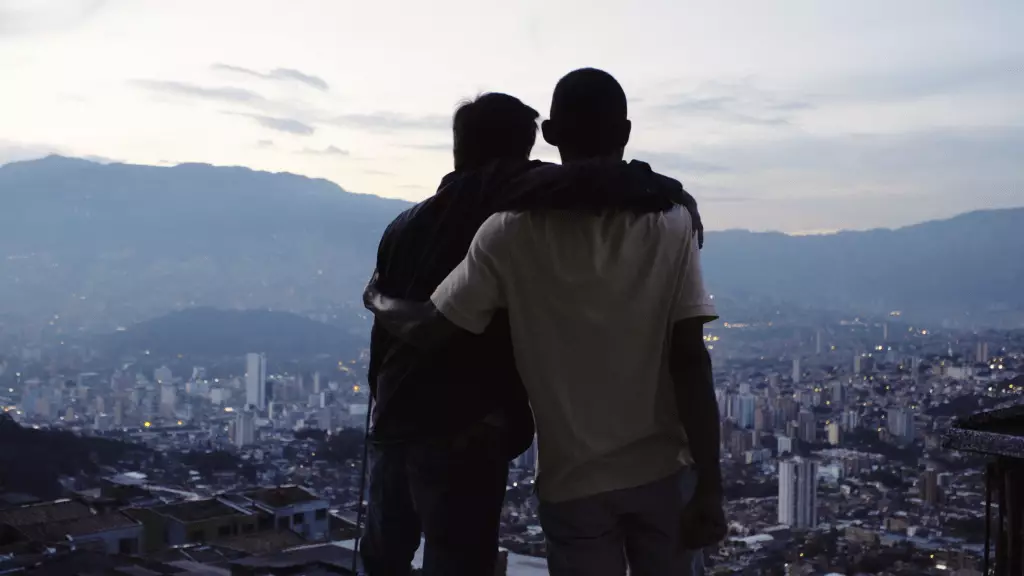In the heart of Bogotá, a pivotal moment in Colombia’s struggle for peace and justice is unfolding. Today’s special screening of “Lara: The Man Who Tried To Save Colombia” marks not only a cinematic achievement but also a profound step towards reconciliation in a nation that has endured extensive turmoil due to drug violence and systemic corruption. This film chronicles a remarkable journey—one that sees Jorge Lara, the son of a politician assassinated on the orders of drug lord Pablo Escobar, form an unexpected bond with Escobar’s own son, Sebastián Marroquín. Their story, a testament to human resilience, underscores the potential for healing even amidst the deepest of conflicts.
The Power of Forgiveness in the Shadow of Tragedy
The assassination of Rodrigo Lara, the Minister of Justice who zealously pursued drug traffickers, sent shockwaves through Colombian society. His death, orchestrated by one of the most infamous criminals in history, left an indelible mark on the Lara family—and indeed, on the soul of a nation grappling with the legacy of its violent past. However, the story does not conclude in vengeance; rather, it takes a transformative turn. Jorge Lara, initially hell-bent on avenging his father’s murder, encounters a twist of fate that leads him toward reconciliation with Sebastián Marroquín. This journey reflects a broader narrative: the imperative of forgiveness as a means to combat violence and promote social healing.
Marroquín’s own life has been deeply affected by his father’s choices. Haunted by the legacy of Escobar and the harm wrought under his father’s reign, he becomes emblematic of the complexities often faced by second-generation victims of violence. The reconciliation between these two men is not merely an emotional resolution for families; it serves as a powerful symbol of hope for Colombia, urging a move away from a cycle of retribution toward a future defined by understanding and collaboration.
Documentary Filmmaking as a Catalyst for Change
The achievement of the team behind “Lara: The Man Who Tried To Save Colombia” is not to be understated. Filmmaker Gavan, whose past work reveals a commitment to bringing challenging narratives to light, dedicated over a decade to gather the necessary access and insights for this documentary. Such resilience in crafting this narrative highlights the role of documentary filmmaking as a crucial mechanism for social discourse and change. By unveiling the intricacies of this reconciliation, the film invites viewers to confront uncomfortable truths about justice, the drug trade, and what it means to heal.
Furthermore, the participation of high-profile figures, family members, and diplomats at today’s screening implies a wider societal recognition of the need to address systemic issues rooted in Colombia’s history. The convergence of these various stakeholders signals an urgent call to action—to pursue a full investigation into the assassination of Rodrigo Lara and to bring those complicit in the crime to justice. Gavan’s articulation of Jorge Lara’s unresolved pain resonates deeply; it is a reminder that the shadows of the past can linger long if not confronted head-on.
A Narrative Beyond Borders: Global Implications
The international dimension of this story cannot be overstated. Escobar’s influence extends far beyond Colombian borders, captivating the world’s imagination while simultaneously serving as a somber reminder of the toll that drug violence inflicts. The film’s global distribution, managed by Banijay Rights, ensures that this narrative reaches a wide audience, potentially sparking dialogues on similar issues faced by nations plagued with drug-related violence.
The prominence of Colombia’s story as a case study in reconciliation offers invaluable lessons to other societies grappling with their legacies of violence. It serves as a poignant exploration of how shared humanity can bridge divided pasts, fostering a discourse that advocates for accountability without losing the essence of compassion and unity.
The essence of “Lara: The Man Who Tried To Save Colombia” lies not just in the story it tells but in the conversations it ignites—conversations that are desperately needed as Colombia continues navigating the turbulent waters of its history while striving toward a more peaceful and just society.
